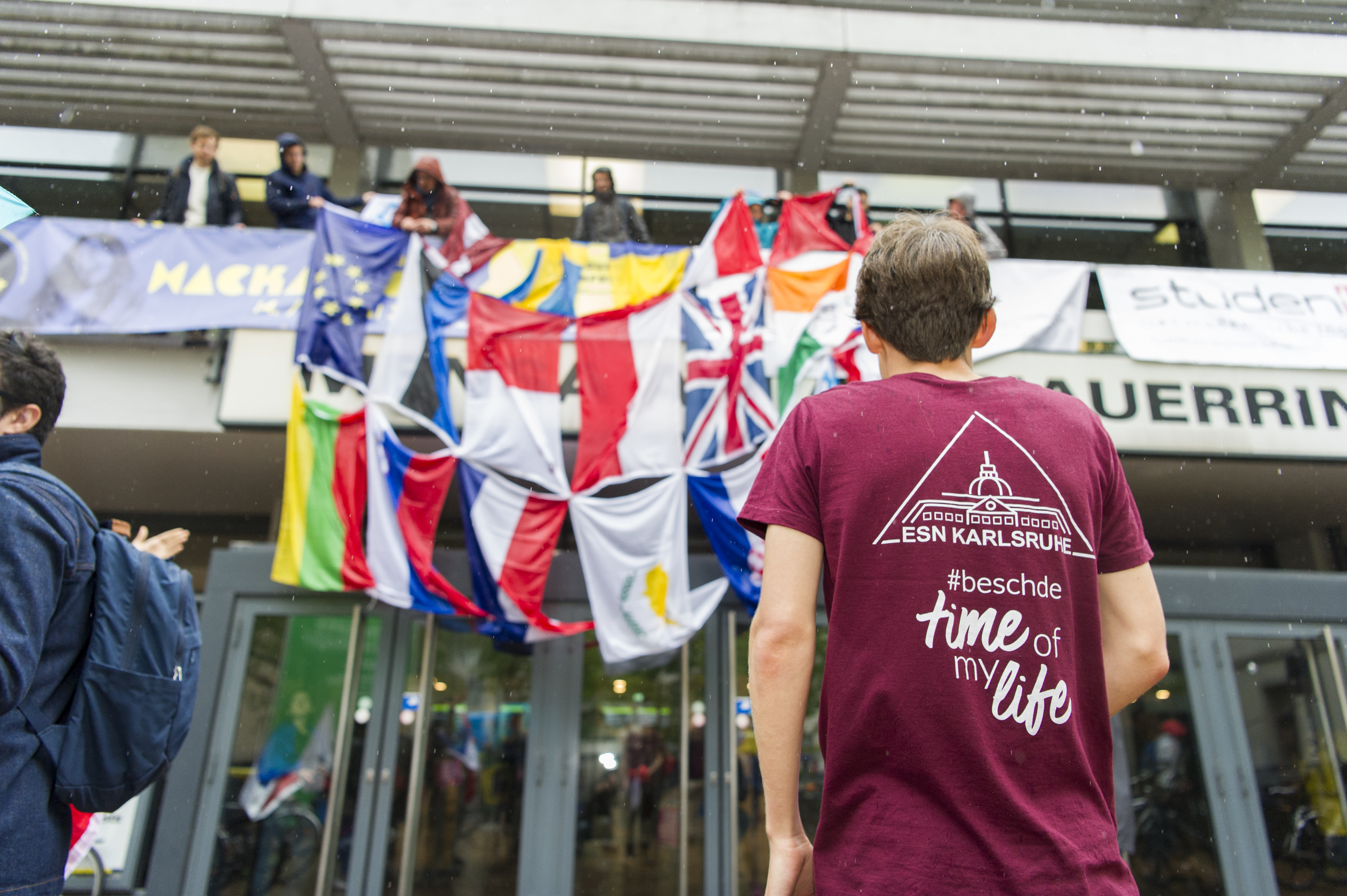Personal Report
-
Preparation and arrival
-
Life and organization at the university
-
Courses with description
-
Recognition procedure
-
Free time
-
Contacts and integration
-
Self-development and conclusion
EU survey
After we have received the Certificate of Departure at the end of your stay, you will receive an e-mail with a link to an evaluation form (sender: replies-will-be-discarded∂ec.europa.eu; subject: Erasmus+ individual participant report request). This EU survey serves to evaluate and reflect on your ERASMUS+ stay. Please confirm your participation in Mobility Online.
Transcript of Records (ToR)
Second installment
The second installment will be paid at the end of the study abroad program, after receipt of all scholarship-relevant documents (Certificate of Departure, personal experience report in digital and paper form, Transcript of Records) and participation in the 2nd OLS language test and EU online questionnaire (invitation will be sent by e-mail).
Please note: The IStO will reclaim any overpayments (e.g. due to shortening the duration of your stay due to illness). You must also expect a refund if the documents relevant to the scholarship are not submitted to the IStO by the deadline or if the 20 ECTS credits earned abroad per semester are not achieved.
-
DLA "Changes During the Mobility" (if changes are necessary)
-
Certificate of Departure
-
Personal experience report
-
EU survey
-
Transcript of Records
-
January 30
-
March 30
-
June 30
-
September 30
Recognition of academic achievements
The coursework completed abroad can be recognized here at KIT. If you have obtained the corresponding recognition confirmations before the start of your semester abroad, you can now redeem them with your professors. Recognition is regulated by your KIT faculty. Information on this can be found on the ERASMUS+ exchange page of your KIT faculty.
General information on recognition can be found here.
Conversion of examination results
The recognition and conversion of examinations taken abroad is generally the responsibility of the faculties. In addition to grades, other aspects such as SWS, course content and different grade distributions often play a role in practice. The Conference of Ministers of Education and Cultural Affairs recommends the modified Bavarian formula as a practical basis for converting examination results. In practice, it may be best to use a conversion table that you have found and cite the source. However, this can only ever be a recommendation!
The "modified Bavarian formula":
Where the following applies:
-
x = grade sought
-
Nmax = maximum grade (top grade) of the respective grading scale
-
ND= Grade value to be converted
-
Nmin = Lowest passing grade of the respective grading scale
The maximum and the lowest passing grade should be taken from the grading system used at the foreign university/for the respective degree program submitted by the student.
Example Spain
The Spanish grading scale ranges from 0-10. The Spanish transcript of records shows that the maximum achievable grade is 10 and the lowest passing grade is 5. The student has achieved an 8 in the examination. After applying the modified Bavarian formula, the converted German grade is 2.2.
General information and feedback options
General information on the recognition of foreign credits can be found on the website of the German Rectors' Conference.
The Suggestion Box is available as a central point of contact for all problems, including criticism and feedback on recognition and recognition processes.
Certificate of International Competence (ZIK)
Would you like to prove the international competence you have acquired during your studies to future employers? With the ZIK, KIT certifies exactly such knowledge. Further information on the ZIK can be found here.
Join ESN Karlsruhe
Erasmus Student Network (ESN) Karlsruhe is a university group that does a lot for exchange students and the European idea in Karlsruhe. If you miss your ERASMUS+ time, ESN Karlsruhe will certainly help you against post-ERASMUS depression!
The international buddy program at KIT
If you have come back and would like to make international friends at KIT, you and many international students can get in touch through the international buddy program.
Involvement in the ERASMUS program of the KIT
Further opportunities abroad
After the semester/year abroad is before the next experience abroad. KIT offers many opportunities for studying, internships or final theses abroad: double degree programs, EPICUR, Erasmus internship, Eucor, MINTernship, PROMOS, overseas programs. Navigate our website!

